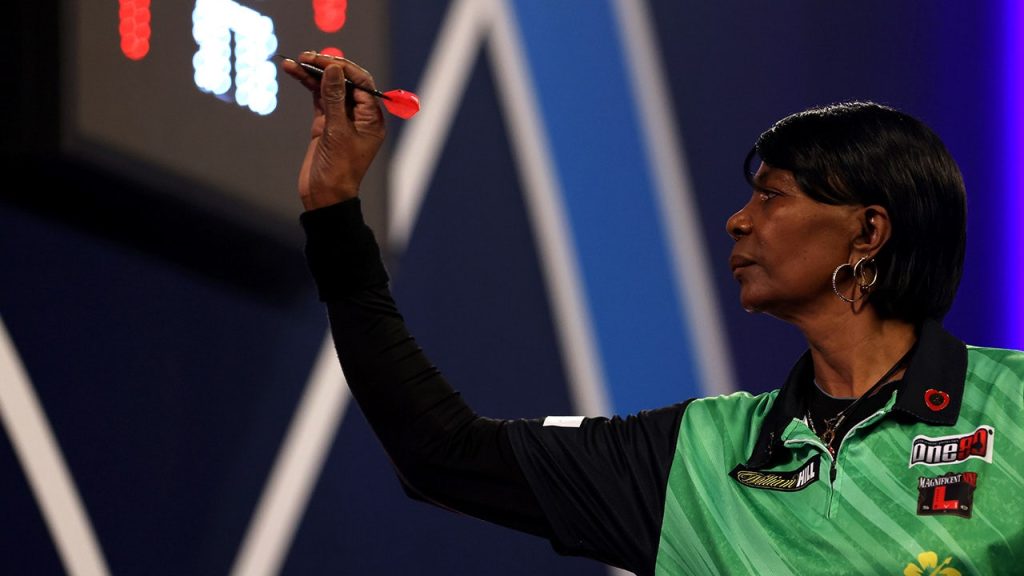British female darts player Deta Hedman made headlines after refusing to play against a transgender competitor, Noa-Lynn van Leuven, in the Denmark Open. Hedman decided to remove herself from the competition rather than face off against van Leuven in the quarterfinals. She clarified that she did not pull out of the match due to illness, but rather because she did not believe that biological born men should compete in women’s sports events. Hedman’s decision sparked a debate within the sport and she stood firm in her beliefs, declining any compensation she may have lost as a result of her choice.
Despite Hedman’s withdrawal, van Leuven continued on in the tournament but eventually lost in the semifinals to Beau Graves. Van Leuven had previously defeated Graves in a women’s event in the Professional Darts Corporation (PDC) as well as in a mixed event. The transgender athlete revealed that the transition process began at the age of 16 and faced backlash as van Leuven moved into women’s competitive darts. Van Leuven shared her struggles with self-acceptance and the difficult decision she faced before transitioning, ultimately choosing to live as her true self.
PDC chief executive Matt Porter confirmed that van Leuven complies with the organization’s transgender participation policy, which follows guidelines set by the Darts Regulation Authority and the International Olympic Committee (IOC). The IOC’s policy for transgender female competitors mandates a testosterone level below 10 nanomoles per liter for at least 12 months and requires that gender identity cannot be changed for at least four years. The IOC advises sports organizations to address any potential advantage that transgender athletes may have, emphasizing the need to mitigate any disproportionate advantages that may exist.
The issue of transgender participation in sports continues to be a topic of debate, with differing opinions and policies across various organizations and competitions. While some support the inclusion of transgender athletes and advocate for their right to compete, others like Hedman express concerns about fairness and competition integrity. As more transgender athletes seek to participate in sports, governing bodies are tasked with establishing policies that balance inclusion with maintaining a level playing field for all competitors. These discussions are ongoing and reflect the evolving landscape of sports and the diverse challenges that athletes may face.
Hedman’s decision to withdraw from the Denmark Open due to her stance on transgender competitors in women’s sports events has brought attention to an important and complex issue within the sports community. The debate surrounding transgender participation in sports highlights the need for clear policies and guidelines to ensure fairness and equity for all athletes. While some may disagree with Hedman’s position, her principled stand has sparked conversations about inclusivity, diversity, and the ongoing evolution of sports regulations to accommodate the diverse identities and experiences of athletes. As the sports world continues to navigate these challenges, it is imperative to seek a balance that upholds the values of fairness, respect, and opportunity for all participants.


